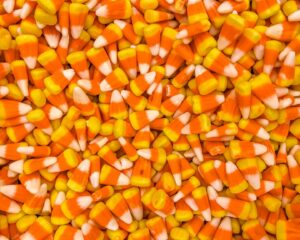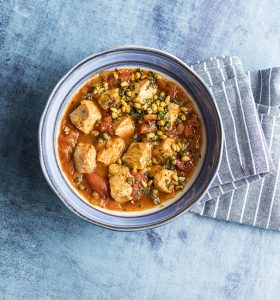Halloween: More Than Candy | Childhood Obesity News

With Halloween only one day away, let’s take a quick look at the advice pediatric obesity experts are giving to minimize — or at least control — the deluge of candy. Between the parties and trick-or-treating it’s very possible for parents and guardians to lose track of how much candy and processed, unhealthy food the kids are eating.
However, with these tips, parents streamline the fun without having kids overindulge. Yes, much of this advice is obvious — and it’s easier said than to follow — but it’s worth revisiting. In an interview with Fox News Digital, Dr. Dyan Hes, medical director at Concorde Pediatrics of Northwell Health in New York City, along with a few other experts, shared these tips.
Don’t banish all candy, set limits
Dr. Hes rightly pointed out that families that are overly strict about candy consumption can lead to kids sneaking “forbidden food.” Instead, set the limit on how many pieces of candy your child or children can have on Halloween night and any satellite events and parties.
The Fox News Digital article author, Lifestyle Reporter Angelica Stabile writes:
The American Heart Association recommends that kids don’t consume more than 25 grams of added sugar per day.
That’s the equivalent of about four to five mini Milky Ways, three fun-size Snickers or three bags of M&Ms, according to registered dietitian nutritionist Ilana Muhlstein.
“Knowing there’s a clear and fair allotment ahead of time will minimize any friction later on,” the Los Angeles-based expert told Fox News Digital.
“It will also encourage them to prioritize their favorite candies, eat them more slowly and savor them more mindfully,” she went on.
“It’s a great opportunity to demonstrate moderation and balance.”
Dr. Hes also suggests storing leftover candy out of sight after Halloween and give out only two treats max per day (the fewer the better). Even better, donate the candy.
Serve balanced meals
Before trick-or-treating, serve your kids healthy, nutritious food with plenty of veggies, protein, and fiber. You can have fun with it, too, by keeping the Halloween theme throughout. Muhlstein told Stabile:
This will help the kids feel full, balance their blood sugar levels, improve their energy and reduce the likelihood of overindulging in candy later on.
“Treats” don’t have to be just candy
Treats don’t equal only candy. Think about getting or giving out trinkets, stickers, temporary tattoos, toys, and other items.
Muhlstein said:
It’s a great way to help your kids foster a healthy relationship with the holidays, so they see that there are more ways to treat yourself and celebrate, beyond food.
Consider non-candy activities
Whether you are hosting or attending a party, instead of filling up on candy, think about activities that involve movement, like a dance party, a costume fashion show or a contest, or a scavenger hunt. Not into that? Suggest a DIY art project (the internet is full of themed suggestions, with printable instructions and handy materials).
To quote Muhlstein again:
Alternative celebrations like these also help prevent the risks of overindulging in sweets, including upset stomachs, hyperactivity and cavities.
Think about gut health
In his article for The Conversation, gastroenterologist and gut microbiome researcher at the University of Washington School of Medicine Christopher Damman also warns to stay away — or at least limit — sugar-laden treats, choosing more microbiome-friendly offerings:
Not all Halloween treats are created equal, especially when it comes to their nutritional value and effects on gut health. Sugar-coated nuts and fruit such as honey-roasted almonds and candy apples rank among the top, offering whole food benefits just beneath the sugary coating. Packed with fiber and polyphenols, they help support gut health and healthy metabolism.
On the opposite end of the spectrum are chewy treats such as candy corn, Skittles, Starbursts and Twizzlers. These sugar-laden confections are mostly made of high fructose corn syrup, saturated fat and additives. They can increase the unsavory bacterial species in your gut and lead to inflammation, making them one of the least healthy Halloween choices.
Pure chocolate candy, especially dark chocolate, are a better option than candy that contains only a small amount of chocolate (we’re looking at you, Twix, Three Musketeers and Milky Way).
Well, there you have it. Hopefully, armed with this expert advice, you’ll have a fun, safe Halloween! We’ve been discussing and doling out Halloween-related advice on this blog for years, so if you’re interested, just type “Halloween” on our homepage in the search box, and a treasure trove of posts dating years back is all yours!
Your responses and feedback are welcome!
Source: “Halloween candy overload: 5 ways to keep kids from overindulging,” Fox News Digital, 10/28/24
Source: “Halloween candy binges can overload your gut microbiome – a gut doctor explains how to minimize spooking your helpful bacteria,” The Conversation, 10/23/24
Image by Mary Jane Duford on Unsplash






